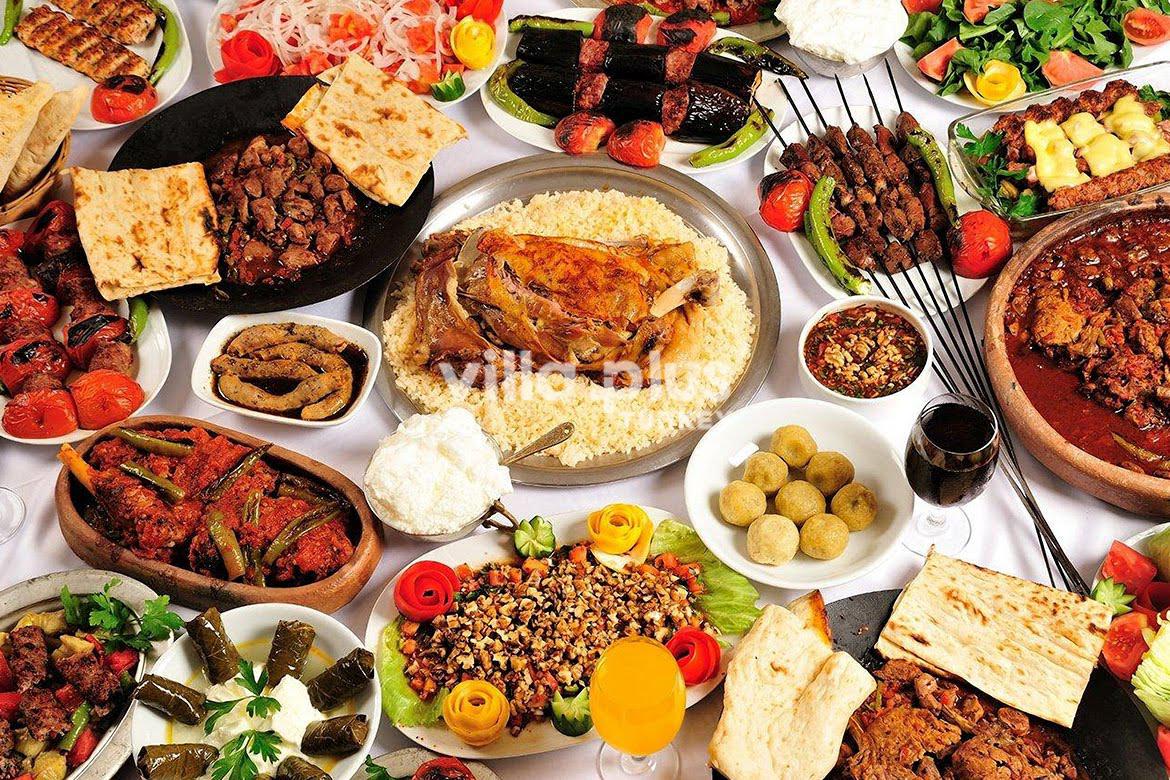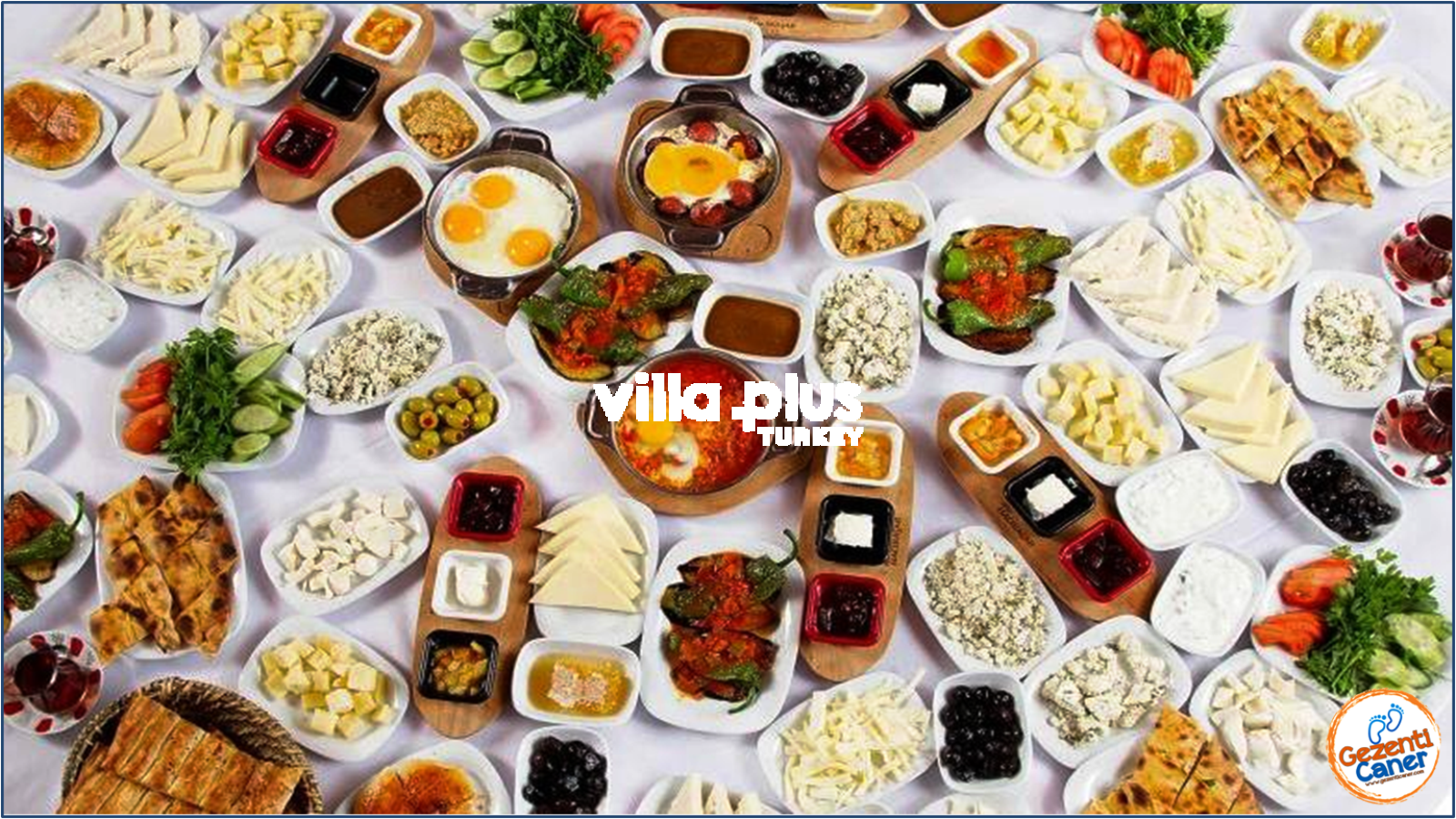Turkey, a country situated at the crossroads of Europe and Asia, boasts a rich and diverse culinary tradition that has been shaped by centuries of history and cultural influences. Turkish cuisine is renowned for its flavors, variety, and the art of blending spices and ingredients to create tantalizing dishes. In this blog post, we will explore the delightful tastes and culinary traditions that make Turkish cuisine so unique.

A traditional Turkish meal often begins with a selection of meze, small dishes that are meant to be shared. These appetizers can range from simple salads and dips to more elaborate preparations like stuffed grape leaves (dolma), fried eggplant slices (patlıcan kızartması), and savory pastries (börek). Meze dishes are bursting with flavors and offer a delightful introduction to the main course.

When it comes to kebabs, Turkish cuisine is renowned worldwide. Skewered and grilled to perfection, kebabs come in various forms, such as the popular shish kebab (marinated chunks of meat cooked on skewers), döner kebab (layers of seasoned meat stacked on a vertical rotisserie), and köfte (grilled meatballs). These succulent and aromatic dishes are often accompanied by rice, grilled vegetables, and yogurt-based sauces.

The Ottoman Empire, with its grand palaces and opulent banquets, left a lasting impact on Turkish cuisine. The royal cuisine of the Ottomans introduced a wealth of dishes that are still celebrated today. One such example is pilaf, a fragrant rice dish cooked in broth and often adorned with nuts, dried fruits, or succulent pieces of meat. Another Ottoman delicacy is baklava, a sweet pastry made of layers of thin phyllo dough filled with nuts and drenched in a sweet syrup.
Turkish street food is a vibrant and essential part of the culinary experience. Wander through the bustling streets of Istanbul, and you'll be tempted by the mouthwatering aromas emanating from street food stalls. Try simit, a circular bread encrusted with sesame seeds, or lahmacun, a thin and crispy flatbread topped with minced meat and vegetables. And let's not forget about the iconic döner kebab, which can be found in many street food joints and is perfect for a quick, satisfying meal on the go.
Turkish desserts are a delightful indulgence for those with a sweet tooth. Treat yourself to the rich and creamy delight of Turkish ice cream (dondurma), known for its unique texture and stretchiness. Savor the exquisite flavors of Turkish delight (lokum), a chewy confectionary made with sugar, starch, and various flavors such as rosewater or citrus. And if you're feeling adventurous, try güllaç, a delicate dessert made of thin layers of starch wafers soaked in sweetened milk and garnished with nuts.

In Turkey, breakfast is considered the most important meal of the day, and it is truly a feast for the senses. Known as "kahvaltı," Turkish breakfast features an array of delicious dishes that are sure to satisfy your appetite. Start your day with a variety of cheeses, including beyaz peynir (white cheese) and kaşar (yellow cheese), along with olives, tomatoes, cucumbers, and fresh herbs. Indulge in the creamy goodness of kaymak, a thick clotted cream, and pair it with honey or jam on freshly baked bread. Don't forget to try menemen, a flavorful dish made with scrambled eggs, tomatoes, peppers, and spices. Turkish breakfast is a delightful way to kickstart your day and experience the rich flavors of the country's culinary heritage.
In conclusion, Turkish cuisine offers a culinary journey that delights the senses with its rich flavors, vibrant colors, and diverse array of dishes. Whether you're enjoying meze with friends, savoring a perfectly grilled kebab, or indulging in a sweet treat, Turkish tastes and culinary traditions will leave a lasting impression. So, next time you have the opportunity, be sure to explore the delightful world of Turkish cuisine and savor the remarkable flavors it has to offer. Check out the villas for rent now for a holiday in Turkey where you can taste delicious food!